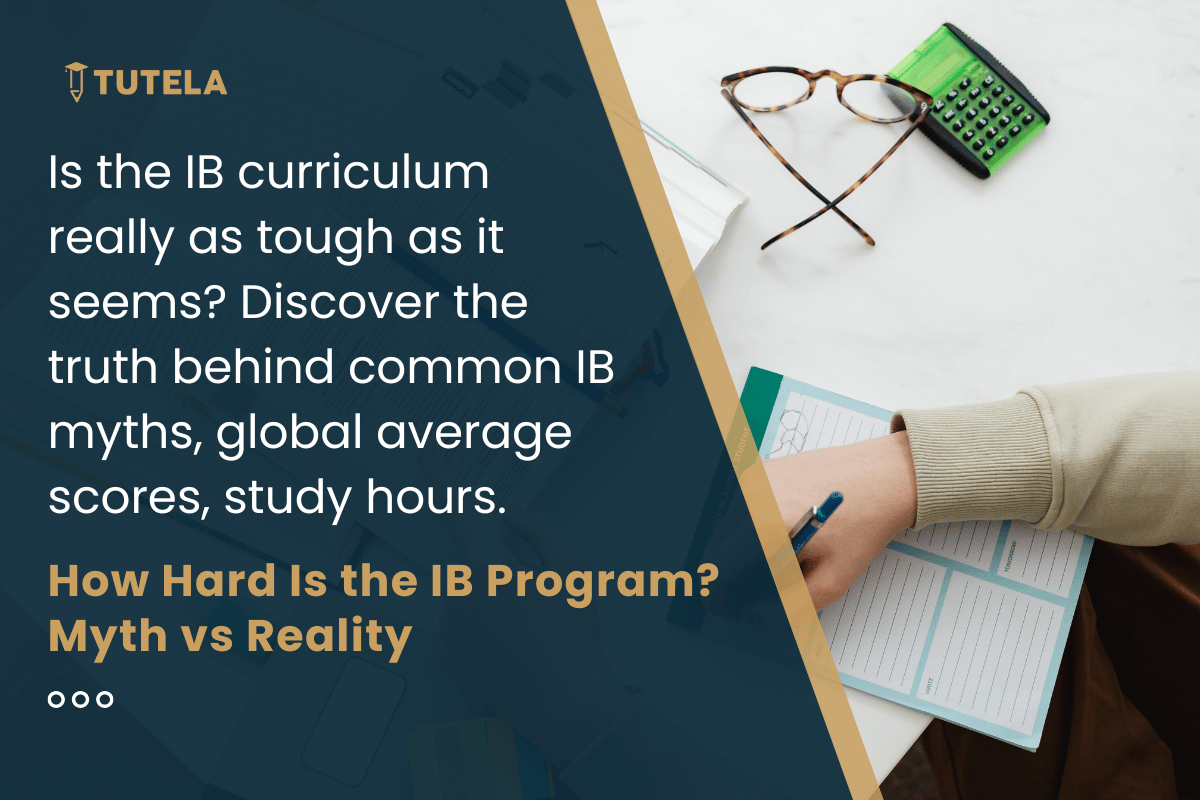
The IB program is rigorous, but not just for academic prodigies. With a global average score of 32/45 and an 80% pass rate, it is challenging yet manageable with the right support. While IB students spend around 22 hours per week on coursework, structured guidance, and Creativity, Activity, and Service (CAS) helps balance academics with extracurriculars. The grading system, combining internal assessments and external exams, is fair and transparent, though difficulty varies by subject. Beyond academics, IB fosters holistic growth through Theory of Knowledge (TOK) and the Extended Essay (EE). Studies show IB graduates are 21% more likely to secure spots at top universities, making the effort worthwhile. With strategic time management and expert guidance, IB is demanding but achievable.
The International Baccalaureate (IB) program has a reputation for being one of the most rigorous pre-university curriculums in the world. Many students and parents researching IB schools near me or exploring the IB curriculum often wonder: Is IB difficult? The answer isn’t as straightforward as a simple yes or no. Let's break down the myths and realities with data and insights to give you a clearer picture.
Reality: The IB program is designed for motivated learners, not just academic prodigies.
While the IB curriculum is challenging, it is structured to develop well-rounded individuals rather than cater exclusively to top scorers. According to an analysis by the International Baccalaureate Organization (IBO), the global average IB Diploma score is around 32 out of 45, while only 3% of students achieve the perfect 45. This suggests that the majority of students fall into a manageable middle ground rather than an elite academic bracket.
Our IB mentors are here to help you! Fill out the contact form, and let's see you on the other side.
Reality: Effective time management makes IB manageable.
A study by the University of Chicago found that IB students spend an average of 22 hours per week on coursework, while AP and A-Level students spend about 16-18 hours. However, IB schools provide structured support, with advisors helping students balance their workload. The IB syllabus also includes Creativity, Activity, and Service (CAS), ensuring students engage in extracurriculars rather than just academics.
Reality: While challenging, IB grading is fair and transparent.
IB assessments include internal assessments (20-30% of the final grade) and externally graded exams. Data from IBO indicates that nearly 80% of students pass the IB Diploma, meaning that while challenging, success is achievable. The difficulty varies by subject; for instance, IB Mathematics HL has a global average score of 4.3/7, while IB Business Management has a more accessible average of 5.2/7.
With the right preparation and guidance, success in IB is within reach! Call now at: +91 8826345542 and talk to our IB Experts now!
Reality: IB fosters holistic development.
Unlike traditional curricula, the IB program meaning extends beyond exams. The Theory of Knowledge (TOK) component develops critical thinking, while the Extended Essay (EE) encourages independent research. Additionally, the CAS component ensures that students engage in activities beyond academics, making IB graduates highly sought-after by universities worldwide.
Reality: IB students have better university admission rates.
A study by the Higher Education Statistics Agency (HESA) found that IB graduates are 21% more likely to be admitted to top universities compared to A-Level and CBSE students. Furthermore, many IB boarding schools in India report that their students receive scholarships from institutions like Harvard, Oxford, and Stanford, making the rigorous curriculum a worthwhile investment.
Thinking about IB? Get a free academic consultation and find out how we can help your child succeed! Fill out the contact form to get a free academic consultation now.
The IB curriculum subjects require dedication, but the program is designed to reward effort rather than raw intelligence. By maintaining balance and utilizing school resources, students can successfully navigate the program. If you’re considering enrolling in an IB school in India or anywhere else, focus on whether the teaching style and subjects align with your learning strengths.
In the end, the IB program is challenging but not impossible, and its rewards—strong university placements, critical thinking skills, and global recognition—make the effort worthwhile.
1. Is IB harder than A-Levels or AP?
Ans: IB is rigorous, but its holistic approach differs from A-Levels (subject-focused) and AP (exam-based). While IB requires continuous assessment and research, A-Levels and AP allow more specialization.
2. How much time do IB students spend on coursework?
Ans: On average, IB students dedicate 22 hours per week to coursework, compared to 16-18 hours for AP and A-Levels. However, structured time management makes it manageable.
3. What is a good IB Diploma score?
Ans: The global average IB score is 32/45, and nearly 80% of students pass. A score of 38+ is competitive for top universities.
4. Does IB help with university admissions?
Ans: Yes! IB graduates are 21% more likely to get into top universities compared to A-Level and CBSE students, according to HESA.
5. Can an average student succeed in IB?
Ans: Absolutely! IB is designed for motivated learners, not just top scorers. With the right preparation, time management, and support, success is achievable.
Want to make IB easier? Let our experts guide you through the journey. Fill out our contact form or call us on +91 8826345542 to get started